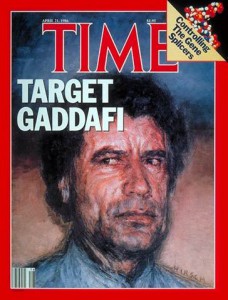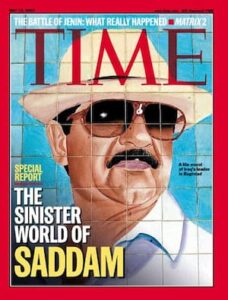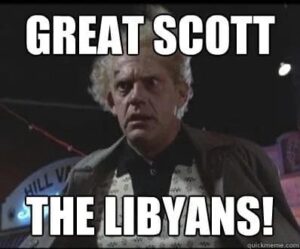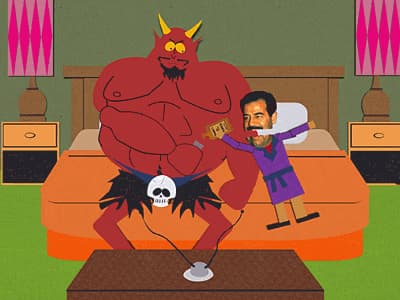Hollywood movies and other media being used for propaganda purposes isn’t anything new or shocking.
We know it happens. We know it was especially prevalent in the past. We know the CIA and the military has had relationships with film studios and productions.
And we know this sort of dynamic exists in other countries too.
But it’s not always so obvious. The obvious stuff is when you have films or shows that are specifically dealing with things like the military, foreign affairs, espionage, etc. In those types of projects, you pretty much expect some degree of cynical propagandising: and it usually isn’t subtle.
There are endless examples of that. One obvious one being shows like 24 or Homeland, which were running parallel to the War on Terror: and often helped glorify or lionise the real-world actions of military and intelligence entities.
But what I find more curious is when the propaganda occurs in items that aren’t so obvious.
When you watch something like Top Gun, for example (which I never have), you know what to expect. But when you watch something like Naked Gun, you’re not as switched on to it.
The two examples I’ve picked out here are a comedy film and a light-hearted action-adventure movie classic: two films that are not obvious places to embed propaganda programming.
These are also two films I’ve liked since I was a kid. Which makes it feel a bit sad.
This isn’t really a commentary on the new Naked Gun film with Liam Neeson, which by all accounts is very funny and perfectly in the spirit of the original films.
But while casually watching the first Naked Gun movie recently, it really occured to me for the first time just how casually propagandistic those – and other films – really were.
I’ve seen those Naked Gun movies countless times over the years. I’ve always enjoyed them – though the short-lived Police Squad TV series was better in my opinion.
But this time I was really struck by the opening scene of the very first film.
For anyone not familiar, the film opens with an undercover Lt Frank Drebin infiltrating a secret meeting of foreign leaders. The leaders, mostly dictators, are discussing how to carry out terrorist acts against the great devil of the United States of America.
What unfolds then is a slapstick comedy sequence in which Leslie Nielsen’s character beats up each of the foreign adversaries in increasingly comical ways.
The leaders depicted are all real-world figures presented as cartoonish caricatures: they include Libya’s Muammar Gaddafi, Yasser Arafat of the Palestinian national movement, the Ayatollah Khomeini, Mikhail Gorbachev and several others.
As a kid, I’m sure I found this scene funny. As an adult, it comes across a very different way now.
In essence, it reads as a casual reinforcement of the era’s prevailing foreign policy propaganda narratives: that the east was full of dangerous adversaries – cartoonish supervillains threatening America’s noble place in the world.
And Lt Frank Drebin, bumbling idiot though he may have been, represented righteous American ass-whooping rights: at least in this specific scene.
Other comedy films and entities have done similar things: Team America: World Police is a good example, but that film was much more brazen about its message and it was arguably more a parodying of the trope rather than a reinforcing of it.
For that matter, I was never entirely comfortable with South Park’s depictions of Saddam Hussein as the ultimate evil: which seemed to entirely play into the Neo-Con/Israeli propaganda lead-in to the illegal and catastrophic Iraq War.
I’m a massive fan of South Park. But that’s one element where I have to look back with a touch of suspicion.
Not unrelated, something else I never noticed about these movies as a kid were the names in the credits: pretty much every writer, producer and executive named in the Naked Gun credits is Jewish. I won’t go into the whole trope of Jews and Hollywood here, and I don’t know how many of those people were specifically Israeli or linked to Israel.
But this kind of gives added weight to the notion of a sequence like this being purposeful propaganda, designed to line up with US/Israeli paradigms.
Sure, it’s just a slapstick scene and shouldn’t be taken too seriously. But the underlying message being reinforced is of these foreign leaders as comic-book villains in the highly scripted geo-political theater that a great many people genuinely subscribed to for years.
The way this scene is staged, it could easily be Lex Luthor and the Legion of Doom sat at this table, discussing plans to defeat the Justice League.
For years, people genuinely bought into the narratives of Saddam or Gaddafi, for example, being existential threats of Anti Christ type proportions.



And for years, the media programming was designed to set these figures/regimes up as terrible adversaries that would one day need to be destroyed.
And even Arafat, included in the aforementioned Naked Gun scene, was portrayed by many as some kind of inherently dastardly villain – and not what he really was, which was a legitimate leader of the Palestinian national identity.
A scene like hits even worse when you consider that each of these caricatured boogeymen is now dead: some of them by assassination or by direct military attack.
Look at the abject state of Iraq, Libya or, for that matter, the Palestinians, today: and then go back and watch the concerted portrayal in various media of these leaders and countries twenty years or thirty years ago and it’s an uncomfortable timeline.
I guess the main point is that this material hasn’t aged well.
I still like those films, and I love Leslie Nielsen in that iconic role. But looking back at stuff like this with somewhat wiser eyes changes the vibe.
The other example I’ve recently thought about is Back to the Future.
A universally beloved film, and a part of the childhood nostalgia of most people my age.
It’s another movie I must’ve watched countless times over the years. But only in a recent viewing did I properly realise something I’d never noticed before.
When Doc Brown and Marty McFly are attacked by brown-skinned villains in a van – trying to steal nuclear material, naturally – they’re not just presented as general terrorists.
Our protagonists literally yell out “It’s Libyans!” Or something to that effect.
Amusingly, there’s even a collectible toy of the Libyans’ van available.


The bad guys are just “Libyans!” I never noticed or registered this detail as a kid. But it’s another casual example of reinforcing a propaganda image: in this case, this was the eighties and Libya was depicted as the terrorist supervillain.
What these little inclusions did was to subtly implant or reinforce certain biases and perceptions into people’s minds about the world and about international affairs. About who the Bad Guys were.
In a film like Back to the Future specifically, a lot of kids loved that movie: and would’ve taken in the message, even just subconsciously, that “Libyans” were Bad Guys or terrorists.
And then in the future, when real-world foreign policy dictated something like an attack on Libya, the years of multimedia programming would help convince people that these villains were justified targets – because, in the popular mindset, this had always been the case.
This is something you notice the more you look for it in older movies, especially from the eighties and nineties.
Another example I recently realised is the fact that the last haven for humankind in The Matrix movies is, uncoincidentally, called ‘Zion’. Which basically makes all the heroes in that film trilogy ‘Zionists’. It’s not too subtle.
Those Matrix movies also famously feature the oddity of Neo’s passport expiration date being specifically September 11th 2001 (that film came out in 1999).
But this is taking us into the subject of predictive programming, which is a whole other matter.
Incidentally, some argue that the Back to the Future movies also have a lot of 9/11 symbolism in them: but I’ve been less convinced by that, even having had the case made to me in detail.
In terms of popular tropes in a lot of older movies, having Russians be the bad guys in movies made some sense, because of the Cold War. And having the British be the villains was probably rooted in the War of Independence. But the particular trope of Arabs or Middle Easterners as the bad guys seems to have been based on two things: one being to reinforce the Israeli propaganda paradigm that was prevalent, and the other being to lay groundwork for the War on Terror in terms of seeding a long term bias or perception.
I still always have a fondness for things like Back to the Future and the Naked Gun movies. For the most part, they’re still fun and nostalgic movies.
But I have to admit that, looking back at these things with a different perspective has tainted them a little bit for me.




